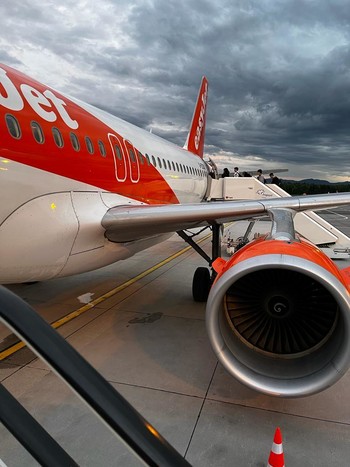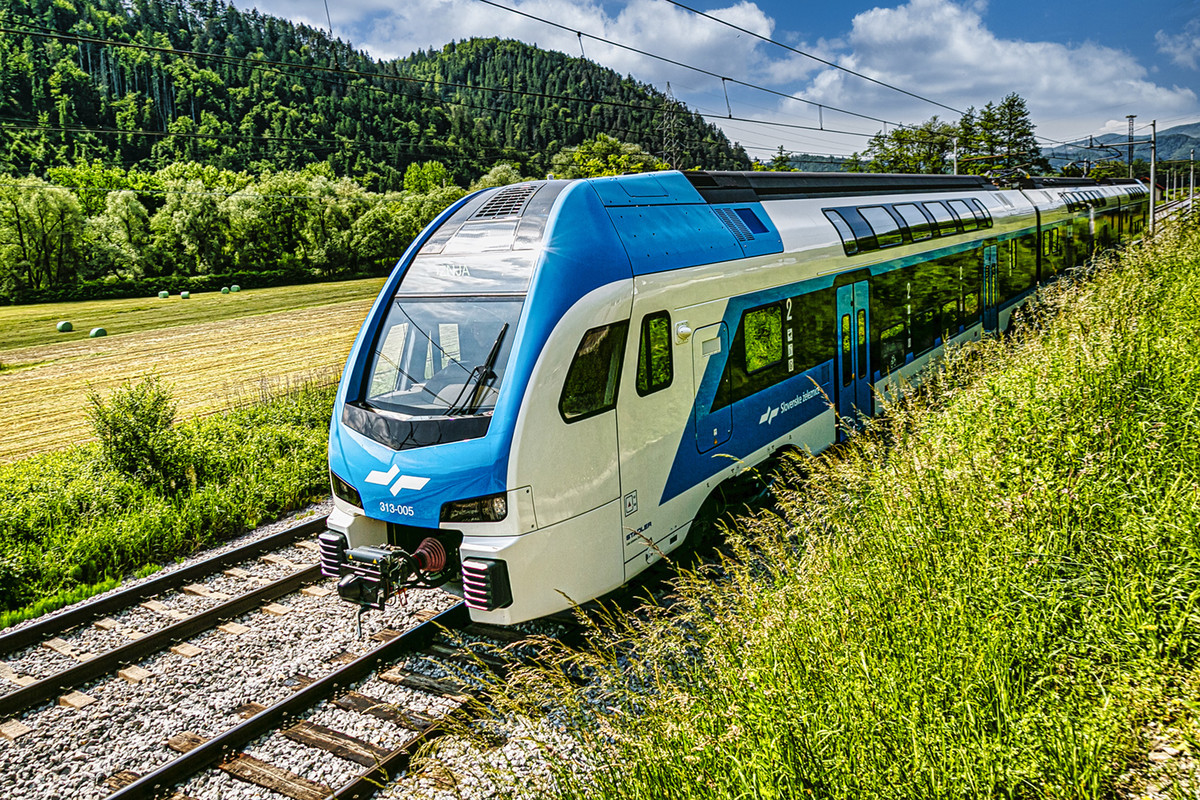On track with sustainaibility: travelling by train from London
Barbara Uranjek, Member of the Management Board of Chapter Zero Slovenia, took the train from London to Ljubljana, reflecting on the important impact that travelling by train has on reducing our carbon footprint. We also took the opportunity to talk to Slovenian Railways (Slovenske železnice), a committed supporter of environmentally friendly alternative methods of transport, and H.E. Tiffany Sadler, British Ambassador to Slovenia and Ambassador of Chapter Zero Slovenia, who has embraced environmental protection as both a professional responsibility and a personal commitment.

With the increasingly worrying consequences of climate change, the need to embrace (personal) sustainable practices is urgent. In this context, we also need to rethink our travel habits. How can we reduce our carbon footprint? What are the alternatives to existing travel practices? In this article, we will take a business trip from London back to Ljubljana together with Barbara Uranjek, a Member of the Management Board of Chapter Zero Slovenia. Barbara made the first part of the journey from Ljubljana to London by train, but during the rest of the journey she carefully considered her travels around the city and her return home. "The London Underground is the most efficient way to travel, you move quickly and the city map is very clear." Barbara also made sure that she put her meetings in a reasonable sequence: "I tried to schedule my meetings according to location, saving a lot of my time and optimising costs and resources." Barbara then travelled from London back to Ljubljana by train.
Travelling by plane has long been a popular choice for its convenience and speed. However, it is important to be aware of the environmental impact of flying. According to a study by the European Environment Agency, planes emit around 285 grams of CO2 per passenger kilometre, while trains emit only 14 grams of CO2 per passenger kilometre. This staggering difference underlines the paramount importance of finding travel alternatives in reducing our carbon footprint.
It is worth adding that the aviation industry is currently responsible for around 2 % of global CO2 emissions. However, this percentage is expected to increase significantly in the future. Without significant action to address its environmental impact, the aviation sector could contribute up to 22 % of global emissions by 2050, according to the European Federation for Transport and Environment.

This was echoed by mag. Darja Kocjan, Director of Slovenian Railways-Passenger traffic, echoed this sentiment and said the following about the importance of sustainable train travel:
"Railway has a key advantage compared to other forms of transport, as it already today utilises electricity for passenger and freight transport on Slovenian railways, 50 % of which is generated from renewable energy sources. When transporting passengers between Maribor and Ljubljana, the railway consumes on average 6 times less energy per passenger than is used in road transport. As a society, we are increasingly aware that a large number of cars is not the best choice, neither for our wallets nor for the environment. This is also reflected in the growth in the number of passengers travelling by train. New modern trains and increased offer are, of course, a major contributing factor. In the long term, investment works that are currently causing congestion will bring even more opportunities to expand the public transport offer in Slovenia. We are upgrading our rail passenger services into a comprehensive transport service. We need to offer passengers a solution for travelling from home to their final destination, with rail as the backbone of public transport. By integrating mobility offers between all stakeholders, I believe we can build even better public transport in the long term."

On the topic of travelling by train, we also talked to H.E. Tiffany Sadler, British Ambassador to Slovenia, who is a strong advocate for action on climate change as part of her professional priorities, but also believes that it is everyone's responsibility to take care of the environment. She shared with us her personal commitment to sustainable travel in an effort to reduce her carbon footprint and help protect our planet. Aware of the environmental consequences associated with flying, she is actively seeking alternatives that are in line with her values. Whenever time allows, she travels by train, including returning home to London from Ljubljana. She knows that personal actions matter and that leading by example is an important way to promote green travel. By sharing her personal journey and experiences, she aims to inspire others to consider sustainable alternatives and contribute to a greener future for all.

In the next video, Barbara takes us to a train station in London, where she shows us the many benefits of travelling by train. She points out that by choosing the train, she not only saved time travelling to the airport, she also avoided the hassle of checking in and waiting at the security check. In this way, she also reduced her footprint even further.
Barbara draws prudent conclusions about her long but interesting and enlightening journey. Despite changing trains in Paris, Milan and Venice, which meant that she took four trains to Ljubljana, Barbara emphasises how she used her time wisely to be productive and thus have a positive impact on the environment. By working while travelling, she was able to catch up on some of her work tasks and at the same time reduce her carbon footprint. Watch the video in which Barbara shares her final thoughts, experiences and satisfaction.